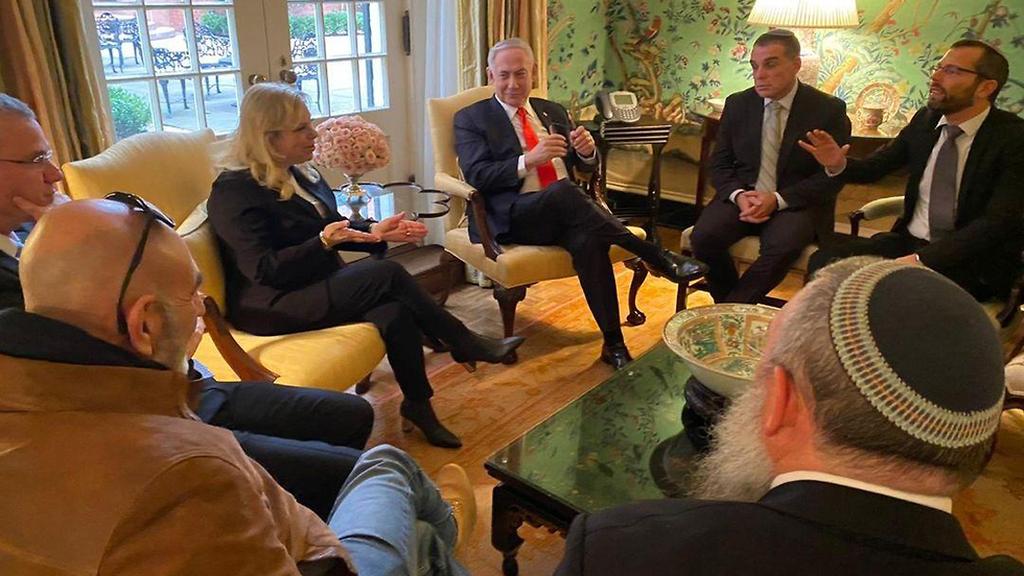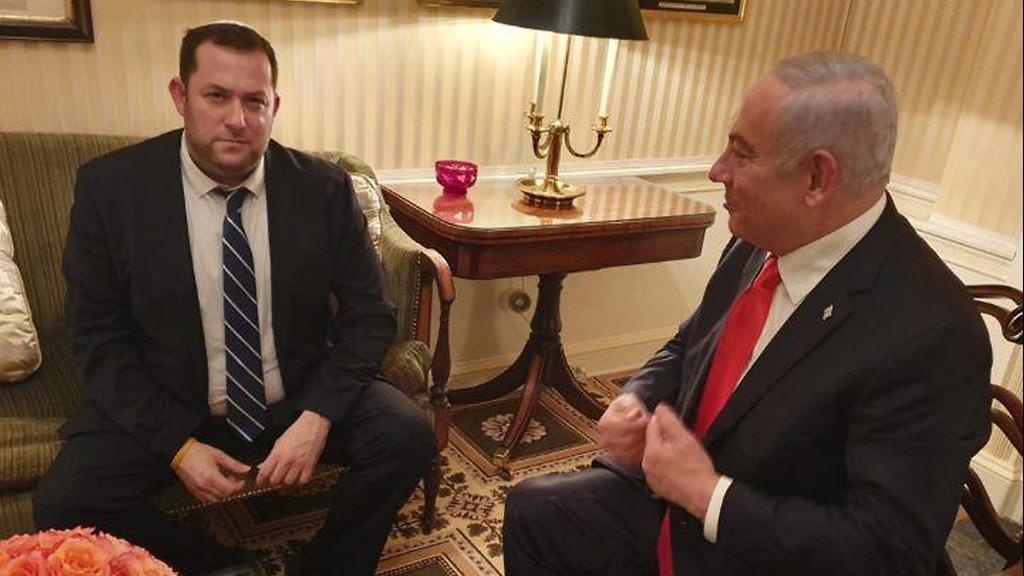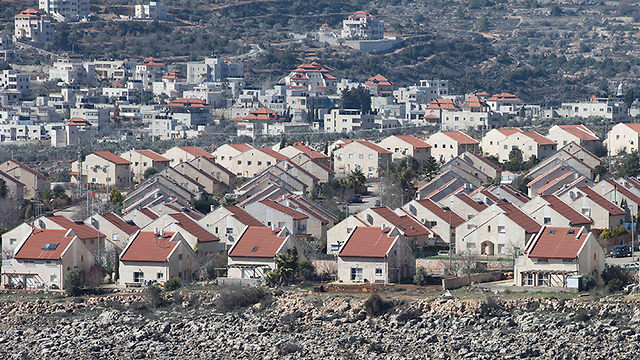Despite being wooed by Prime Minister Benjamin Netanyahu, who even took them to Washington with him on Monday, settler leaders said Tuesday they would not support a Middle East peace plan that includes a Palestinian state.
The comment came hours before U.S. President Donald Trump was due to unveil his long-awaited peace plan that includes such a provision.
3 View gallery


Prime Minister Benjamin Netanyahu, accompanied by his wife Sara, meets with the settler leadership in Washington
(Photo: Yesha Council)
"We are very disturbed," David Elhayani, the head of the Yesha Council of Settlements, told U.S. officials in Washington on Tuesday.
"We can not agree to a plan that includes the creation of a Palestinian state to endanger the State of Israel and pose a sizable threat in the future," he said.
"We declare that we will never let a Palestinian state be created, even at the cost of Israeli hegemony over certain territory in the West Bank. We demand that prime minister, his cabinet and Knesset members do not accept any plan that includes Palestinian statehood."
The settlers met earlier Tuesday with Netanyahu, who made a final attempt to garner their support for the Trump plan.
Among those present were senior representatives of the Yesha Council and the heads of the Jordan Valley, Efrat, Mateh Binyamin and Gush Etzion regional councils in the West Bank.
The settler leaders expressed their support for Netanyahu, but expressed their objections to the U.S. plan.
"We came here to strengthen the prime minister's resolve, stand at his side and voice to the White House the opinions of all settlers in a clear manner," they said.
"It was important for us to hear everything first hand and not from hearsay," said the settler leaders. "We emphasized to the prime minister the matters important to the settlers and the nation as a whole: Israeli hegemony and control over the West Bank and the continued development and prosperity of the settlements."
Netanyahu then met separately with Samaria Regional Council head Yossi Dagan, who expressed his own concerns over the peace plan, primarily the establishment of an independent Palestinian state, the division of settlements into those inside blocs and those without, the creation of settlement enclaves within Palestinian territory, transfer of territory within Areas B and C to the Palestinians and a settlement construction freeze.
The plan allegedly allows Israel to annex 30% to 40% of Area C, while the Palestinians will have control over about 40% of Areas A and B. This leaves the status of the remaining 30% of Area C unclear.
Under the terms of the 1994 Oslo Accords, Area C is under full Israeli security and civilian control, Area B is under Israeli security and Palestinian civilian rule and Area A is under full Palestinian security and civilian control.
3 View gallery


Yossi Dagan and Prime Minister Netanyahu meeting in Washington on Tuesday
(Photo: Samaria Regional Council)
Netanyahu showed Dagan several sections of the peace plan, emphasizing that the West Bank settlements and their continued development are his chief objective.
"The prime minister was intuitive and meticulous and showed that the good of the land of Israel and the settlements are on his mind," said Dagan.
"I feel certain issues are not hammered out and probably won't be until the last moment. We are here in Washington to aid the prime minister and U.S. President Donald Trump on the annexation of all settlements in the West Bank and not - God forbid - risk the continued Jewish presence in the West Bank or the integrity of the state."
The deal apparently leaves 15 settlements in small, isolated enclaves and settlers fear that they will have to evacuate their homes at some point.
Israel will also be required to cede 60 illegal outposts that house some 3,000 settlers.
This is the section that the settlers will struggle with and also contradicts Netanyahu's past promises to the settlers to annex all settlements.


